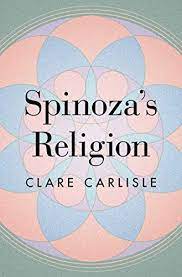Steven Nadler at Literary Review:
 The term ‘atheist’ can be just as ambiguous as ‘religious’ and ‘God’. In the 17th century, it was essentially an all-purpose word used against anyone whose view of God departed from orthodoxy – much in the way that ‘communist’ was (and is) used in the USA to cast aspersion on political opponents (and much in the way that ‘Spinozist’ was used in the early modern period after Spinoza’s works were posthumously published and condemned). But Spinoza does not only dismantle the orthodox notion of a personal God, which he regards as a source of human misery. He also famously refers to ‘God or Nature’ (Deus sive Natura), which suggests that God is nothing but nature, and that ‘God’ can broadly be construed to refer both to the visible cosmos and to the unseen but fundamental power, laws and principles that govern it. And this, to me at least, looks like true atheism. In Spinoza’s view, all there is is nature. There is no supernatural; there is nothing that does not belong to nature and that is not subject to its causal processes.
The term ‘atheist’ can be just as ambiguous as ‘religious’ and ‘God’. In the 17th century, it was essentially an all-purpose word used against anyone whose view of God departed from orthodoxy – much in the way that ‘communist’ was (and is) used in the USA to cast aspersion on political opponents (and much in the way that ‘Spinozist’ was used in the early modern period after Spinoza’s works were posthumously published and condemned). But Spinoza does not only dismantle the orthodox notion of a personal God, which he regards as a source of human misery. He also famously refers to ‘God or Nature’ (Deus sive Natura), which suggests that God is nothing but nature, and that ‘God’ can broadly be construed to refer both to the visible cosmos and to the unseen but fundamental power, laws and principles that govern it. And this, to me at least, looks like true atheism. In Spinoza’s view, all there is is nature. There is no supernatural; there is nothing that does not belong to nature and that is not subject to its causal processes.
more here.
